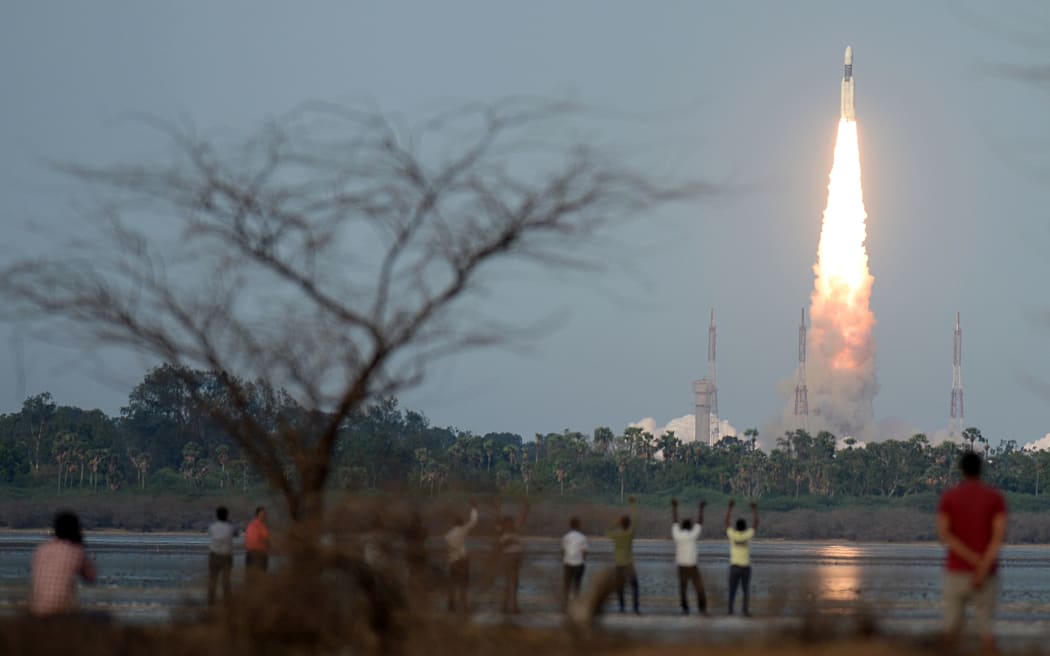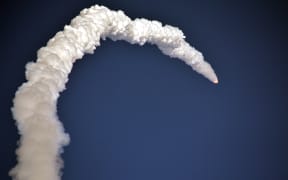India's space agency has successfully launched its heaviest rocket.

The satellite onboard the rocket being launched in Sriharikota in south-east India. Photo: AFP
The 640-tonne rocket blasted off from a launching site off the Bay of Bengal in Sriharikota.
The rocket will reduce the Indian Space Research Organisation's (ISRO) reliance on European vehicles to launch heavy satellites.
'200 elephants' and 'jumbo jets'
The coverage of the launch has been euphoric, and often colourful, with websites comparing the rocket to the weight of 200 elephants, or five jumbo jets.
Such comparisons highlight the importance of the launch for the country, which is aggressively competing to get a bigger share of the global commercial satellite launch market.
India has so far relied on other countries to send heavy satellites into space, which is expensive and a drain on ISRO's budget.
The GSLV Mark III can carry put a payload weighing more than three tonnes into the high altitude orbit occupied by the spacecraft that relay TV, telephone calls and broadband connections.
But it is far from being the world's heaviest rocket. Nasa's Saturn V, which was used between 1967 and 1973, still holds that record with total mass at lift-off about four times that of India's rocket.
The NDTV website said the rocket was as heavy as five Jumbo jets.
Experts said the rocket gave India more flexibility in launching different kinds of satellites.
"We were able to send [satellites weighing] up to two tonnes previously. This is a double quantum jump for India," Ajay Lele from the Institute for Defence Studies and Analyses told the AFP news agency.
ISRO hopes that the rocket, called the "monster" by one newspaper, will be able to carry an astronaut to space by 2024.
India wants to become the fourth country after the US, China and Russia to send a person into space.
The launch follows ISRO's other recent achievements, including a mission to Mars, and the launch of more than 100 satellites in a single mission earlier in the year.
-BBC


